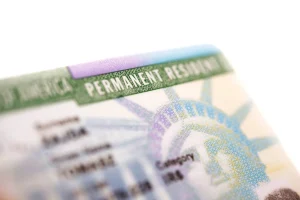Pre-Immigration Tax Planning
Do you have substantial wealth in your
home country and/or abroad?
Are you a business owner or entrepreneur?
Do you have investments spread across
different countries?
If you answered yes to any of these, there is a strong probability we can help. Our experience has enabled us to aid thousands of clients with their application processes, achieving a remarkable success rate of 99%.
Pre-Immigration Tax Planning
When a person emigrates to the United States, he or she becomes subject to the tax laws of the United States, which include worldwide income taxes, gift taxes, and estate taxes, among others. The tax laws that apply to foreigners are often different from those that apply to US persons and are very strict and sometimes unduly burdensome. To make things worse, most immigration attorneys are not familiar with these tax rules.
Both American citizens and people who spend a significant amount of time in the United States pay taxes on their worldwide income (regardless of the country where the income was generated). A timely tax planning consultation can help an intending immigrant avoid unnecessary taxes. Therefore, high-net-worth individuals who plan on moving their foreign business to the U.S., or plan on moving to the U.S. while operating a business in a foreign country, need to form a time-sensitive pre-immigration tax plan.
The sooner you start implementing your pre-immigration tax plan, the more opportunity you will have to avoid negative tax consequences.

- Understand the Tax System of the Destination Country:
- Research the tax laws of the country you are planning to move to. Understand how they differ from your current country’s tax system.
- Look into income tax rates, capital gains tax, estate tax, and any tax treaties that may exist between the two countries.
- Assess Your Current Financial Situation:
- Review your assets, investments, income sources, and any potential inheritances.
- Consider how each of these will be taxed in the new country.
- Consult with Tax Professionals:
- Engage tax advisors who are well-versed in the tax laws of both your current and future country of residence.
- They can provide tailored advice based on your specific financial situation.
- Strategize Asset Allocation and Ownership:
- Determine the most tax-efficient way to hold your assets. This may involve restructuring investments or changing ownership structures.
- Consider the implications of owning property in your current country and how it will be taxed after you move.
- Plan for Retirement Accounts:
- Understand how your retirement accounts will be taxed in the new country.
- Explore options such as rolling over accounts or withdrawing funds in a tax-efficient manner.
- Address Estate Planning Concerns:
- Review your will and estate plan in light of the new country’s laws.
- Consider setting up trusts or other structures to minimize estate taxes.
- Plan for Exit Taxes:
- Some countries impose taxes on individuals who are relinquishing their residency.
- Understand these potential costs and plan accordingly.
- Consider Timing of Immigration:
- The timing of your move can have significant tax implications.
- Plan your move date to minimize tax liabilities in both countries.
- Continual Monitoring and Adjustment:
- Tax laws can change, and your financial situation may evolve.
- Regularly review and adjust your tax planning strategy as needed.
Note: Each individual’s situation is unique, and pre-immigration tax planning should be customized to address personal financial goals and the specific requirements of the involved countries. Professional advice is key in navigating this complex area.
At Abraham Benhayoun Immigration Law Offices, pre-immigration tax planning involves a variety of legal strategies designed to minimize tax liabilities and ensure compliance with the tax laws of both the current and destination countries.
- Tax Residency Analysis:
- Determine your tax residency status in both countries to understand which tax laws apply to you.
- Income Shifting:
- Shift income to a period before or after immigration to take advantage of lower tax rates or favorable tax rules.
- Use of Trusts:
- Establish trusts in jurisdictions with favorable tax laws to manage and protect assets.
- Gifting Assets:
- Transfer assets to family members or into trusts prior to immigration to reduce taxable estate and income.
- Asset Valuation and Transfer:
- Revalue and transfer assets to take advantage of lower valuations and tax exemptions.
- Restructuring Business Ownership:
- Reorganize business entities and ownership structures for tax efficiency.
- Capital Gains Planning:
- Realize or defer capital gains based on differing tax treatments in your current and future countries of residence.
- Retirement Account Optimization:
- Rollover, liquidate, or restructure retirement accounts in a tax-efficient manner.
- Utilizing Tax Treaties:
- Leverage provisions in tax treaties between countries to reduce double taxation.
- Estate and Inheritance Tax Planning:
- Adjust estate planning strategies to minimize potential inheritance and estate taxes in the new country.
- Exit Tax Planning:
- Plan for any exit taxes imposed by the current country of residence when relinquishing residency.
- Debt Structuring:
- Manage and structure personal and business debts to minimize tax liabilities.
- Foreign Bank and Financial Account Reporting:
- Ensure compliance with reporting requirements for foreign assets and accounts.
- Tax Credits and Deductions:
- Identify and claim applicable tax credits and deductions in both countries.
- Insurance Policy Adjustments:
- Review and adjust life insurance and other policies for tax and estate planning purposes.
Note: Each of these strategies requires careful consideration of the individual’s specific financial situation and objectives to navigate these complex issues effectively.
At Abraham Benhayoun Immigration Law Offices, we understand the complexity and nuances of pre-immigration tax planning. We provide thorough guidance to our clients, ensuring they are fully compliant with U.S. tax laws while optimizing their financial position in light of their immigration status.
- Internal Revenue Code (IRC): The IRC is the primary source of federal tax law in the United States. It covers various aspects of income tax, estate tax, and gift tax, all of which are crucial in pre-immigration tax planning. Internal Revenue Code.
- Foreign Account Tax Compliance Act (FATCA): FATCA requires U.S. taxpayers holding financial assets outside the United States to report those assets to the IRS. This is particularly important for immigrants with assets in their home countries. FATCA Information.
- Expatriation Tax Provisions (IRC Sections 877 and 877A): These sections are relevant for individuals renouncing their U.S. citizenship or giving up their long-term residency. They deal with the “exit tax” imposed on certain individuals. Expatriation Tax Provisions.
- IRS Form 8832 (Entity Classification Election): This form is used for the “check-the-box” regulations, allowing entities to choose their classification for tax purposes. IRS Form 8832.
- IRS Form 3520 (Annual Return To Report Transactions With Foreign Trusts and Receipt of Certain Foreign Gifts): This form is used for reporting transactions with foreign trusts and the receipt of large gifts from foreign persons. IRS Form 3520.
- IRS Form 8938 (Statement of Specified Foreign Financial Assets): Required under FATCA, this form is for reporting specified foreign financial assets. IRS Form 8938.
Note: It’s important to remember that the relevance of these statutes and regulations can vary significantly on a case-by-case basis, depending on individual circumstances such as country of origin, residency status, and the nature of assets and income. Consulting with a legal expert specialized in immigration and tax law is crucial for tailored advice.
Testimonials
Trustindex verifies that the original source of the review is Google. Mi esposo y yo estamos contentos y muy satisfechos con el resultado de toda la gestión realizada por Abraham Benhayoun en el proceso de obtener mi residencia por cambio de estatus en USA. Lo recomendamos con los ojos cerrados y si hubiesen más estrellas, con seguridad se las daríamos. Originalmente mi esposo pensaba que podíamos hacer el proceso nosotros solos , pero lo convencí de que era mejor buscar la asesoría de un profesional en la materia ; por recomendación de una amiga llegamos a Abraham y su firma . Definitivamente fue la mejor decisión!!! Nos sentimos seguros y apoyados durante todo el proceso. Abraham es excelente profesional, conocedor de la materia de inmigración y además es una persona súper liviana, amigable y familiar en su trato, siempre dispuesto a responder dudas y a orientarte. 100% recomendado. Gracias AbrahamTrustindex verifies that the original source of the review is Google. As a sponsor navigating the complexities of my partner’s immigration process, I cannot express how grateful I am to have found Abraham. After facing challenges with previous lawyers, I was hesitant but hopeful when I decided to work with him. From our very first meeting, it was clear that Abraham was not just a legal expert; he genuinely cares about his clients. He made us feel seen and understood, guiding us through each step with patience and clarity. His attention to detail and proactive approach gave us the confidence we desperately needed. Abraham’s support was invaluable for us as a couple. He made sure that every aspect of our case was handled meticulously, and he was always available to answer our questions and address our concerns. His dedication to our success made the entire process feel manageable and less daunting. Thanks to Abraham and his firm, we can finally see our dreams of building a life together becoming a reality. I truly wish we had found him sooner; the peace of mind he provided was priceless. If you’re looking for an immigration lawyer who will advocate fiercely for you and treat you like family, Abraham is the one to choose. We are forever grateful for his guidance and support on this life-changing journey.Trustindex verifies that the original source of the review is Google. After a series of disappointing experiences with other lawyers, I finally found Abraham, and I couldn’t be more grateful. From the moment I decided to entrust him with my immigration process, it has truly been a blessing. Abraham is not just knowledgeable; he genuinely cares about his clients. He was always on top of my case, ensuring that everything was handled properly and efficiently. His guidance and support provided me with the trust I needed during such a daunting process. Thanks to Abraham and his firm, I can confidently say I’m on the right path now. My only regret is not choosing him as my first option. If you’re looking for an immigration lawyer who will advocate for you and prioritize your case, I highly recommend reaching out to Abraham. You won’t be disappointed! Gracias again for everything.Trustindex verifies that the original source of the review is Google. From start to finish we were comfortable that this would work out. Abraham left no stone uncovered and armed us with the confidence needed to get where we want to be. First class all the way around.Trustindex verifies that the original source of the review is Google. I'm so grateful for Attorney Abraham's dedication to my case. They were always responsive and went above and beyond to ensure a successful outcome. I highly recommend Abraham to anyone navigating the complexities of immigration law. Their professionalism and expertise are unmatched.Trustindex verifies that the original source of the review is Google. Mi Experiencia personal con el abogado de Migración @Abraham Benhayoun fue absolutamente satisfactoria con gran profesionalismo que los caracteriza en tiempos ,responsabilidad y compromiso !!! Me siento muy agradecida de haber encontrado el Mejor ser humano y equipo de trabajo , para realizar tus trámites Legales.Trustindex verifies that the original source of the review is Google. 11 años conociendo y trabajando con el mejor abogado de inmigración. No hay duda alguna. Dedicación, asesoramiento, interés y preocupación por tu caso de inmigración. Dos renovaciones de mi visa E2, sin complicaciones, siguiendo sus consejos. Abraham escogió siempre el camino correcto. Y aunque parezca menos importante, se convertirá en un gran amigo en quien confiar. Un gran profesional. Lo recomiendo al 1000%.Trustindex verifies that the original source of the review is Google. Su experiencia y preparación minuciosa se hicieron evidentes, lo que dio como resultado una resolución exitosa que ha impactado enormemente mi vida para mejor. Estoy realmente agradecido por su compromiso con mi caso y tengo en la más alta consideración sus habilidades profesionales. Gracias TODO LLEGA CON FACILIDAD Y GOZO MUESTRAME MAS UNIVERO.. !!!!!AMEN... Your experience and thorough preparation were evident resulting in a successful resolution that has greatly impacted my life for the better. I am truly grateful for your commitment to my case and hold your professional skills in the highest regard. Thank you EVERYTHING COMES WITH EASE AND JOY SHOW ME MORE UNIVERSE.. !!!!! AMEN...Thank you Mr. AbrahamTrustindex verifies that the original source of the review is Google. Abraham Benhayoun is the most exceptional immigration lawyer with whom I have had the pleasure of working. He handled my mother's immigration case with utmost professionalism and care. Abraham took the time to comprehensively answer and explain all our questions with great detail and patience, treating us as if we were his own family. Having collaborated with several immigration attorneys in the past, I can affirm that Abraham stands out as the top immigration attorney. I wholeheartedly recommend his services without hesitation.Trustindex verifies that the original source of the review is Google. Highly recommended. Fantastic attorney, who knows how to communicate with clients, very informative, and helps you step by step. I highly recommend to reach out to him Abraham for any visa enquiry, its worth it.
We’re ready to help. Let’s discuss your case.
As a multi-jurisdictional lawyer, Abraham has a deep understanding of estate planning, international tax, and corporate issues that visa applicants often deal with. This allows Abraham to give his clients a well-rounded service almost no other immigration attorney at his level can offer.
Case Studies

Mastering the EB-1 Pathway: Conquering Challenges to Attain Permanent Residency as an Elite Professional
Client Background Our client, a distinguished professional in the music field originally from South America, had already secured an O-1 visa, successfully renewing it once. However,

Overcoming Pandemic Hurdles: The Path to Success in Labor Certification
Client Background Our client, a leading restaurant group in South Florida, approached us for assistance with their labor certification process prior to the COVID-19 pandemic. Challenge Unveiled

Conquering Complexity: Success in Immediate Relative Green Card Navigation
Client Background Our client, the father of a U.S. citizen, embarked on the journey towards obtaining a green card. However, the case presented unique challenges that

